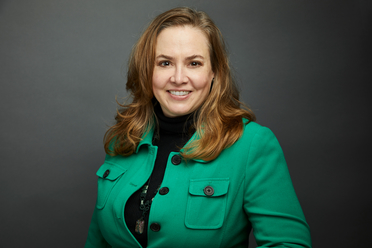
Allison P Squires
PhD RN FAAN
Professor
aps6@nyu.edu
1 212 992 7074
433 First Ave
New York, NY 10010
United States
Allison P Squires's additional information
-
-
Allison Squires, Ph.D., FAAN, RN, is a Professor at NYU Rory Meyers College of Nursing. She is a global health services researcher with two focal areas of research: Creating a sustainable nursing workforce and improving immigrant health outcomes. Prof. Squires is also the Founder and Director of the Global Consortium of Nursing & Midwifery Studies (GCNMS). In addition to holding multiple national and international leadership positions in nursing organizations during her career, she has consulted with the Migration Policy Institute, the International Council of Nurses, and the World Bank on nursing and health workforce issues and produced several major policy analyses with their teams and continues to serve as an expert resource on nursing workforce issues globally.
She has several projects currently funded by domestic and international funders. Domestically, she is studying the impact of language barriers on hospital nursing practice and evaluating the impact of the Magnet journey on small hospitals. Her current funded international studies focus on nursing workforce capacity building in Greece, Ghana, and Guyana. Her signature project, the GCNMS, is now an 87-country research consortium collaborating on research capacity-building projects in nursing and midwifery globally. The consortium's current research study is examining the long-term effects of the COVID-19 pandemic on the nursing and midwifery workforces globally.
Prior to entering academia full-time, Squires worked as a staff nurse in solid organ transplant and as a staff educator for 11 years in the U.S. healthcare system in rural and urban locations. Her practice has since shifted largely to community-based nursing roles as a volunteer.
She is currently accepting Ph.D. students and/or post-doctoral fellows/associates with interests in the following areas: Global health, migration & immigrant health, and health services and workforce research.
-
-
Post-Doctoral Fellowship in Center for Health Outcomes & Policy Research, University of PennsylvaniaPhD, Yale University School of Nursing Doctor of PhilosophyMSN in Nursing Education, Duquesne University School of NursingBSN in Nursing with a Minor in Latin American Studies, University of Pennsylvania School of Nursing
-
-
Global HealthHealth Services ResearchImmigrant HealthMidwifery WorkforceNursing workforce
-
-
Academy HealthAmerican Nurses AssociationNational Council for Interpreting in Health CareSigma International
-
-
Faculty Honors Awards
Distinguished Alumna, Yale School of Nursing Alumni Association (2025)Outstanding Mentor Award, Interdisciplinary Research Group on Nursing Issues of Academy Health (2023)Writing Award for Distinguished Manuscript on Geriatric/Gerontological Nursing (Ma et al. 2021), Gerontological Society of America Nursing Care of Older Adults Interest Group (2021)Distinguished Nurse Scholar in Residence, National Academy of Medicine (2020)Distinguished Nurse Scholar in Residence, National Academy of Medicine (2019)Fellow Ambassador to the Media, New York Academy of Medicine (2018)Fellow Ambassador to the Media, New York Academy of Medicine (2017)Fellow, American Academy of Nursing (2015)Distinguished Alumna, Duquesne University School of Nursing (2015)Fellow, New York Academy of Medicine (2014)Fellow, Yale World Fellows Program, Yale University (2003)Inducted into Sigma Theta Tau International (1998) -
-
Publications
Documenting short-staffing : a delicate balance.
AbstractSquires, A. P. (2004). In Nursing (Vols. 34, Issues 9). 10.1097/00152193-200409000-00015Abstract~Documenting surgical incision site care
AbstractSquires, A. P. (2003). In Nursing (Vols. 33, Issue 1). 10.1097/00152193-200301000-00051Abstract~Excessive GI fluid loss
AbstractSquires, A. P. (2002). In Fluid and electrolyte imbalance made incredibly easy. Springhouse.Abstract~New graduate orientation in the rural community hospital.
AbstractSquires, A. P. (2002). In Journal of continuing education in nursing (Vols. 33, Issues 5, pp. 203-209).AbstractRetention rates for 1-year new graduate nurses had fallen to 30% at the author's institution. Upon reviewing feedback, a lack of a new graduate orientation program was determined to be a significant factor. The challenge presented to staff development was to develop a program that would increase 1-year retention rates of new graduate nurses without incurring overtime costs or significant additional expenses. The result was a successful 8-week orientation program using multiple teaching methods. New graduates rated their own progress through the use of a self-assessment questionnaire. One-year retention rates for new graduate nurses increased to 77% after the program was implemented.Respiratory assessment
AbstractSquires, A. P. (2002). In Assessment made incredibly easy (2nd ed.). Springhouse.Abstract~When potassium tips the balance
AbstractSquires, A. P. (2002). In Fluid and electrolyte imbalance made incredibly easy (2nd ed.). Springhouse.Abstract~Critical care nursing orientation in the rural community hospital
AbstractSquires, A. P., & McGinnis, S. (2001). In Dimensions of Critical Care Nursing (Vols. 20, Issues 4, pp. 40-45). 10.1097/00003465-200107000-00009AbstractHospitals of all sizes should provide an orientation for their newly hired critical care nurses-but when the hospital is a rural community facility, resources for such programs may be in especially short supply. In this article, we describe how our hospital overcame staffing and funding shortages to create a successful, collaborative orientation program for its critical care nurses.Leadership development for the new manager in the small, acute care facility
AbstractSquires, A. P. (2001). In Journal of Nursing Administration (Vols. 31, Issues 12, pp. 561-564). 10.1097/00005110-200112000-00003Abstract~Sink-or-swim tactics?
AbstractSquires, A. P., & Squires, A. (2001). In Nursing Management (Vols. 32, Issues 3, pp. 33-35). 10.1097/00006247-200103000-00012Abstract~Teaching telemetry
AbstractSquires, A. P., Squires, A., & Ciecior, D. (2001). In Nursing Management (Vols. 32, Issues 2). 10.1097/00006247-200102000-00015Abstract~ -
-
Media
-